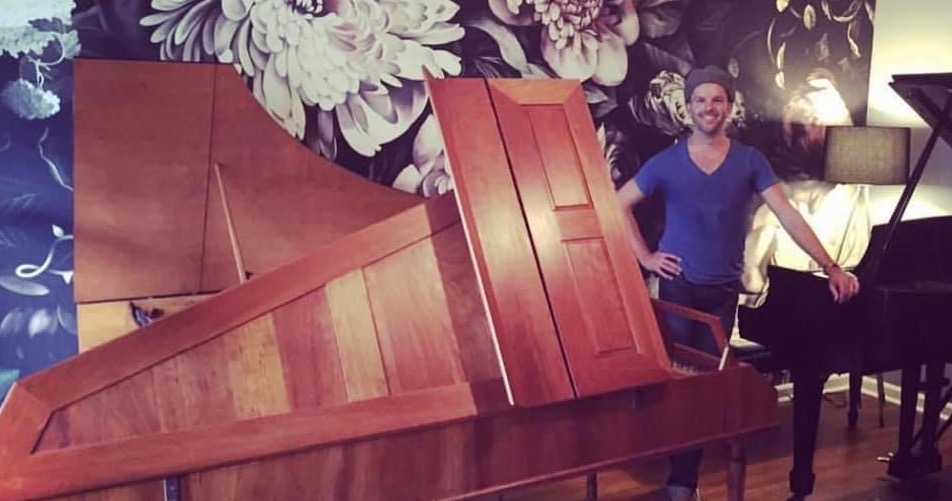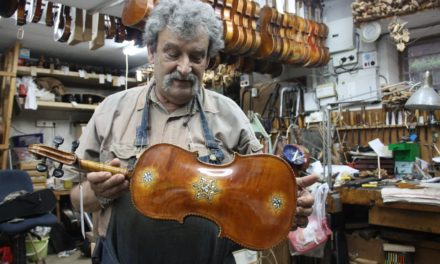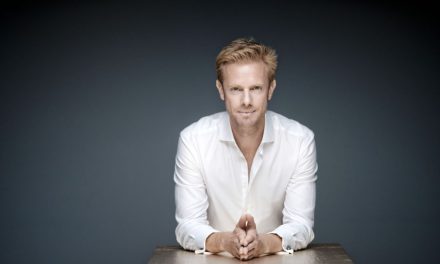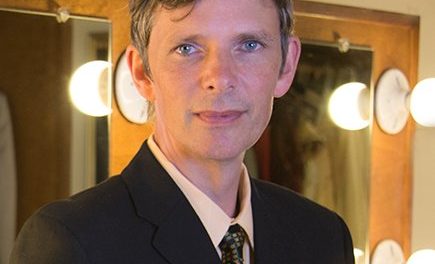Interview by Keith Waits
Entire contents are copyright © 2020 by Keith Waits. All rights reserved.
John Austin Clark is the founding producing artistic director of Bourbon Baroque, operates a private piano studio (#musicbox1532), is an active accompanist and vocal coach, directs musical theatre and opera, and performs regularly with various ensembles and equity theatre houses such as Actors Theatre of Louisville. He is the recipient of the 2017 Young Alumni Achievement Award from his alma mater Louisville Collegiate School in Louisville, Kentucky and a recipient of a Kentucky Governor’s School for the Arts Toyota Alumni Grant that he used to apprentice with harpsichord builder Yves Beaupré of Montréal, QC in August 2017.
“The future is even more unknown than usual lately, so in an effort to spread some love, positivity, and share music with the world, I started a weekly cabaret every Wednesday at 6 PM on Facebook LIVE. I lovingly call it #governmedaddy cabaret.” – John Austin Clark
1. What is the next performance you are/were scheduled to do?
I had Actors Theatre work, a piano studio masterclass, a dinner party, various accompanying work at local institutions, and a senior recital at Y.P.A.S. lined up before the Corona went viral. Also, what many including Unemployment Insurance may not understand, I lost the “potential” for added contractual work which of course is not possible to schedule when we are in quarantine.
2. When did you first know you wanted to be a musician?
I forget, but I would guess it would have been back when I first recognized music as a safe place to allow for creative exploration and to discover identity. I, of course, loved the positive response from my family, friends, and audiences growing up. Both of these elements combined made music and the performing arts a “no-brainer.”
3. What was your journey to Baroque Music?
The Louisville Bach Society partnered with my life-long study of the piano set the stage for my Baroque interests as a professional musician. I knew Oberlin Conservatory had a great program for Historical Performance, and it was while I was a student there that I knew someday I would return to Louisville to start a professional group.
4. Is there a piece you are longing to do but haven’t done yet?
I am not your typical harpsichordist—whomever that may be. My musical interests rest in the chamber and theatrical (surprise surprise) genres. I enjoy performing solo, but the collaboration with other artists is where my creative energy is fed as it is expensed. I am looking forward to the day when the Kentucky Opera and Bourbon Baroque partner for a period Mozart’s Le Nozze di Figaro with me either at the fortepiano or harpsichord helm—whatever we can get our hands-on. On a personal note, this was a dream of Nico’s and mine. Everyone, please do yourself a favor and listen to the Concerto Köln René Jacobs recording. It is life-changing.
5. What has been your most difficult performance?
Two come to mind.
I was playing the 2nd keyboard book for a theatre company once when the 1st keys/M.D. was fired overnight. I was given the M.D. book the next day just before the matinee performance and became M.D. covering both keyboard parts. All of the markings had been vindictively erased; yet, the show had to go on, right? So, I was extremely nervous. I wanted the floor to open up or a bus to hit me, but I went on with what I was charged to do. It actually wasn’t that bad, but that was the closest I ever came to a public display of regurgitation.
The second most difficult performance was Bourbon Baroque’s Mozart collaboration with the Louisville Ballet in 2018. No tea; no shade. It wasn’t due to any administrative misgivings from either party. It was just difficult in that groundbreaking sense. Nothing like that project had ever been done before locally. I am not quite sure whether the Louisville audience was aware of the unique nature of the project. To many it might have been just another ballet show with live music; however, this project was special. Alice and I gathered a group of Baroque specialists from all over the country, found a fortepiano for me to use, and created a symbiotic work of art with new choreography from the Ballet paired with a LIVE Classically informed orchestra in the beautiful Brown Theatre. Bowing at the end of the show flanked by the entire Ballet corps is etched in my memory and something for which I am extremely proud and grateful.
The most difficult shows, I suppose, can be the most gratifying. I would do them again…hands down.
6. Who or what has been your most important inspiration?
Kermit the Frog.
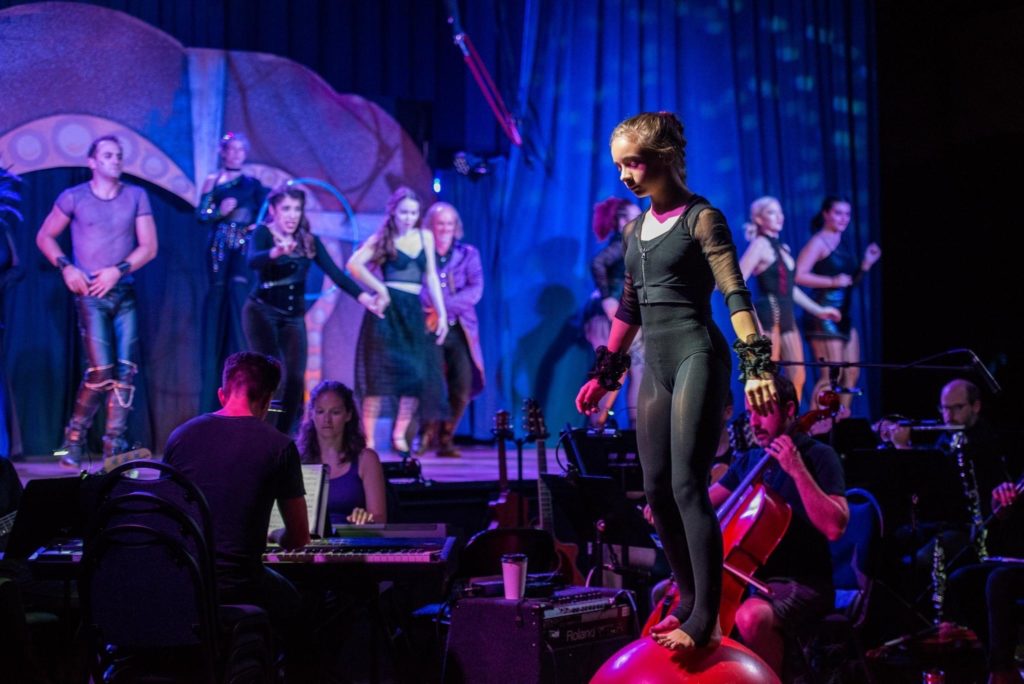
Musical Director for Acting Against Cancer’s Pippin 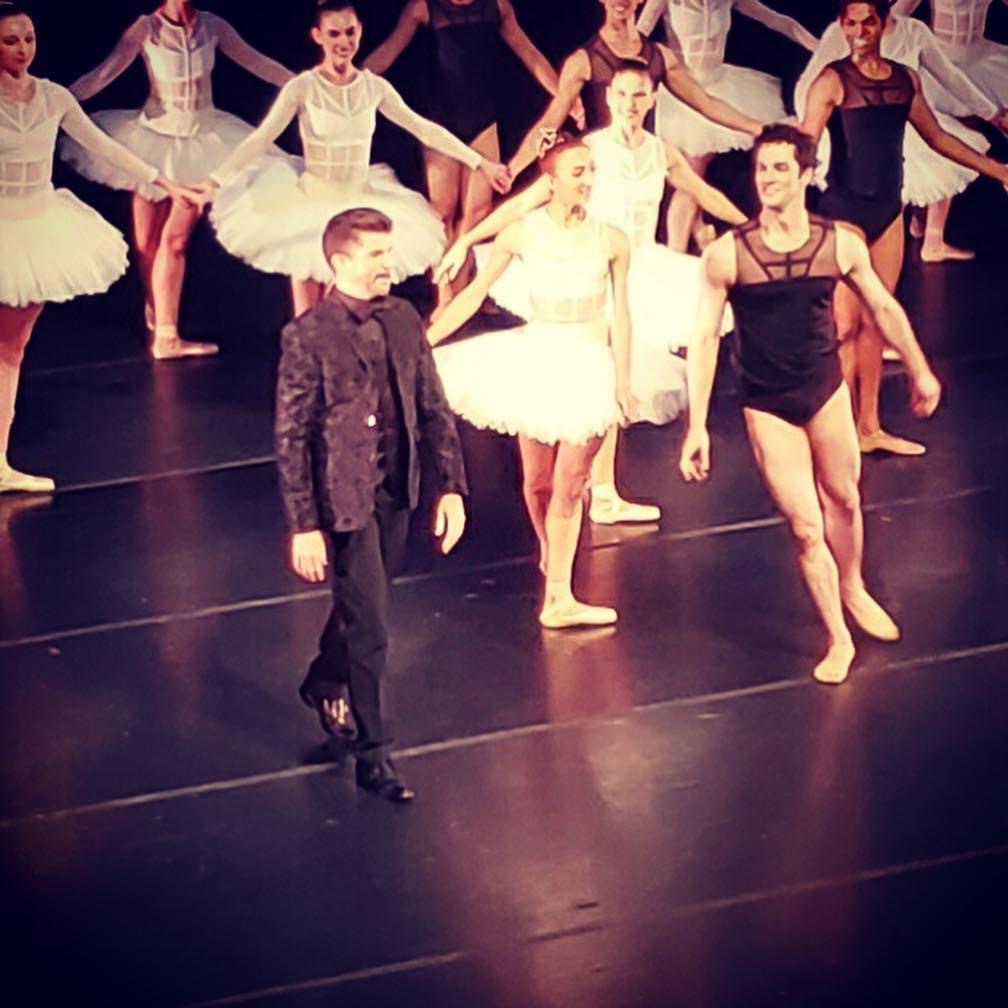
Louisville Ballet’s Mozart
7. You have worked and performed in other cities; in particular you spent a lot of time in NYC. What, if anything, is different about working in Louisville?
The level of professionalism is no different. One must carry themselves in a manner in which they also desire to be treated; though, in Louisville, folks are more apt to give you the light of day. Art is less commercial here. We, the creative ruffians of Louisville, have a sound fraternal understanding. Work is more competitive in New York City. I also am a born and raised Louisvillian, so work and networking have come naturally to me here. All of these things combined have made my time in Louisville a relatively easier one compared to that of a larger city. I enjoyed the challenge of a larger landscape, but I also enjoy owning a piece of property to call my own and running around like mad willy-nilly when the mood strikes—Louisville makes this possible.
8. You also work as a music director for contemporary musicals? Is there a relationship between Contemporary and Early Music?
I am not sure if there is an academic answer for that other than I enjoy finding the parallels between the two genres simply because I love them both individually. I often am referencing the genre at rest during its counterpart’s rehearsal process—this is when I am turned on the most artistically: culturally cross-referencing to draw connective tissue creating pathways between the academic and commercial musician. There is a reason why the American musical form has garnered such success; there is a reason why the music of the Baroque has survived. Both genres have a great deal to learn from one another. If I am at the helm of a project, you can bet I will be inter-relating them. I just can’t help it. It just makes sense.
9. If you weren’t a musician, what do you imagine you would be doing?
I would be a motivational speaker.
10. What is on your quarantine playlist?
I have been cramming so much music daily so that I can fill my weekly #governmedaddy cabaret. Everything from the Baroque to Broadway; from jazz to adult alternative…my cabaret has you covered. So, literally everything.
11. What book is on your bedside table?
I have two! “Afterlife” by Julia Alvarez & “Deacon King Kong” by James McBride
Though, I have yet to crack them. I honestly have been too busy worrying about my career, my family, my friends, the well-being of the world, exercising, eating healthy to ward off the virus as best as possible, cleaning everything, enjoying the spring blooms, and preparing for #governmedaddy cabaret.
12. What is the first thing you will do when quarantine is lifted?
I will hug my family and friends and proudly order a round of drinks! (on me)
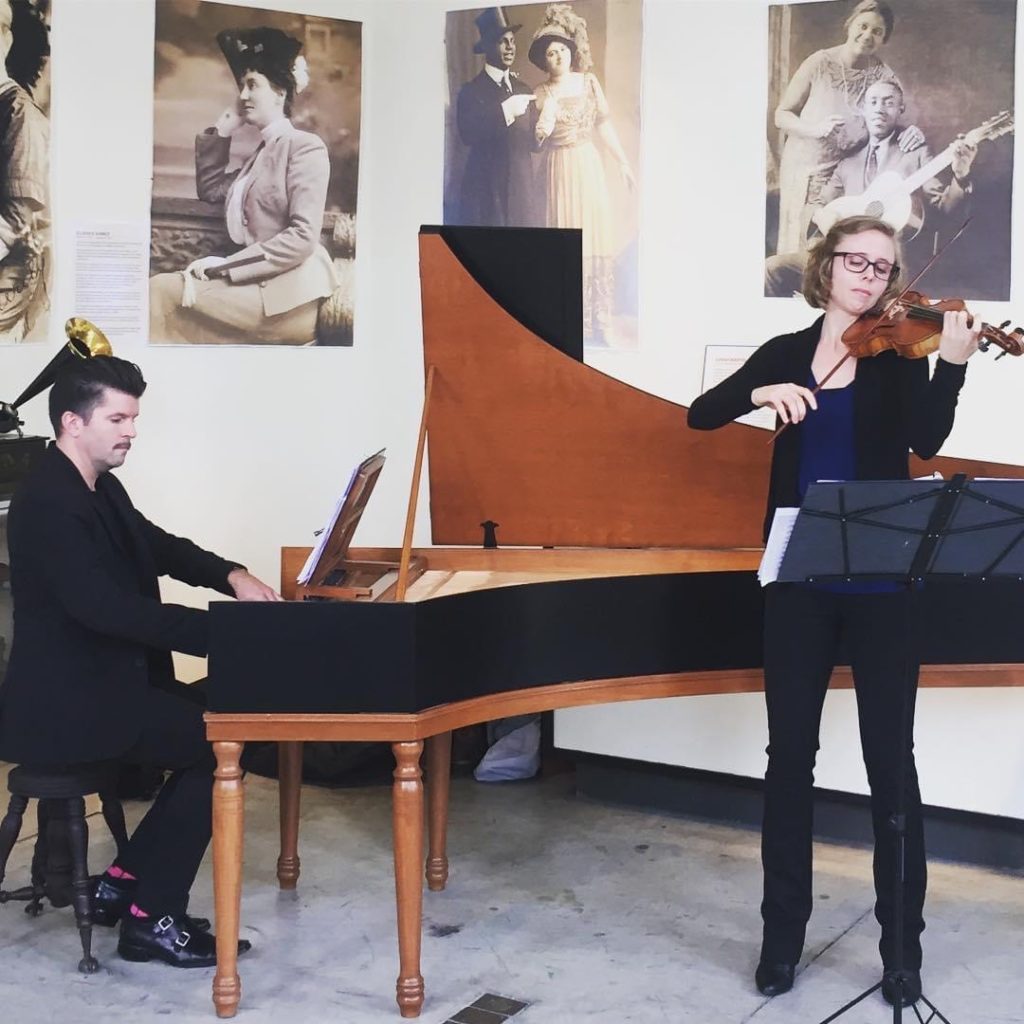
Clark & Bourbon Baroque Co-diretcor Alice Culin-Elliison
Keith Waits is a native of Louisville who works at Louisville Visual Art during the days, including being the host of LVA’s Artebella On The Radio on WXOX 97.1 FM / ARTxFM.com, but spends most of his evenings indulging his taste for theatre, music and visual arts. His work has appeared in LEO Weekly, Pure Uncut Candy, TheatreLouisville, and Louisville Mojo. He is now Managing Editor for Arts-Louisville.com.

